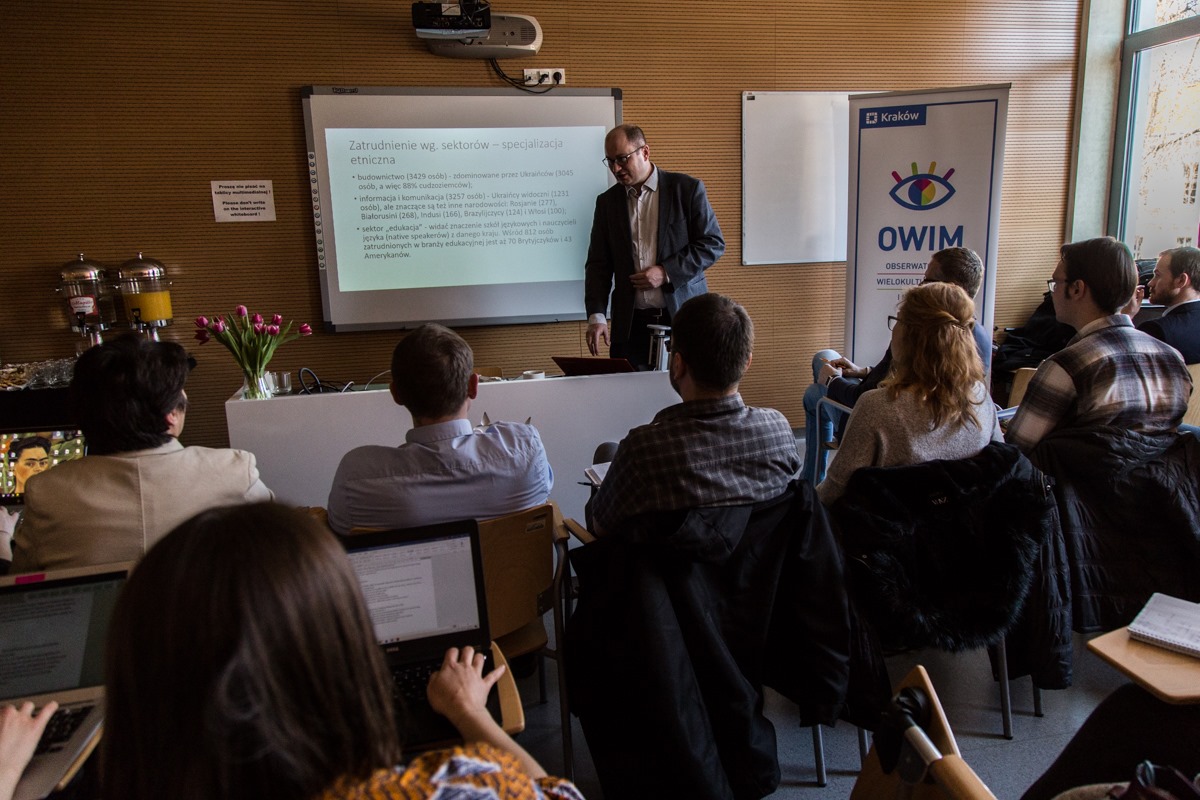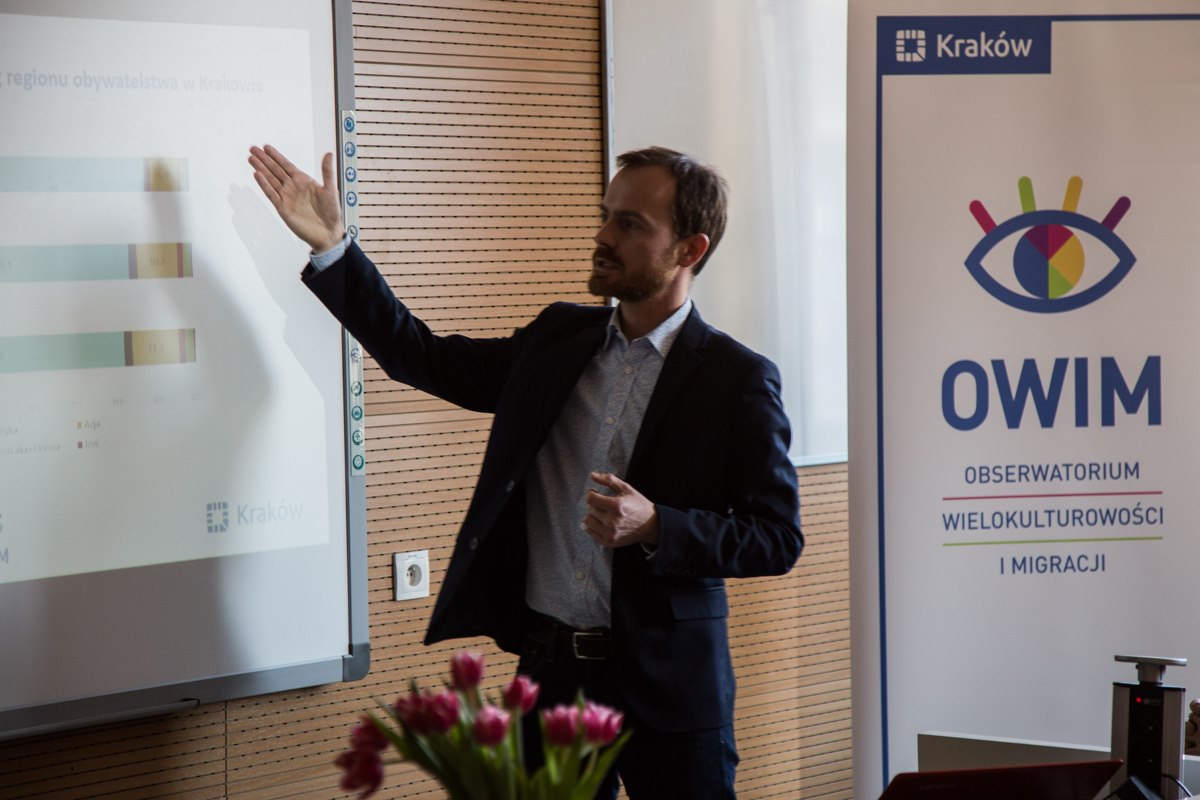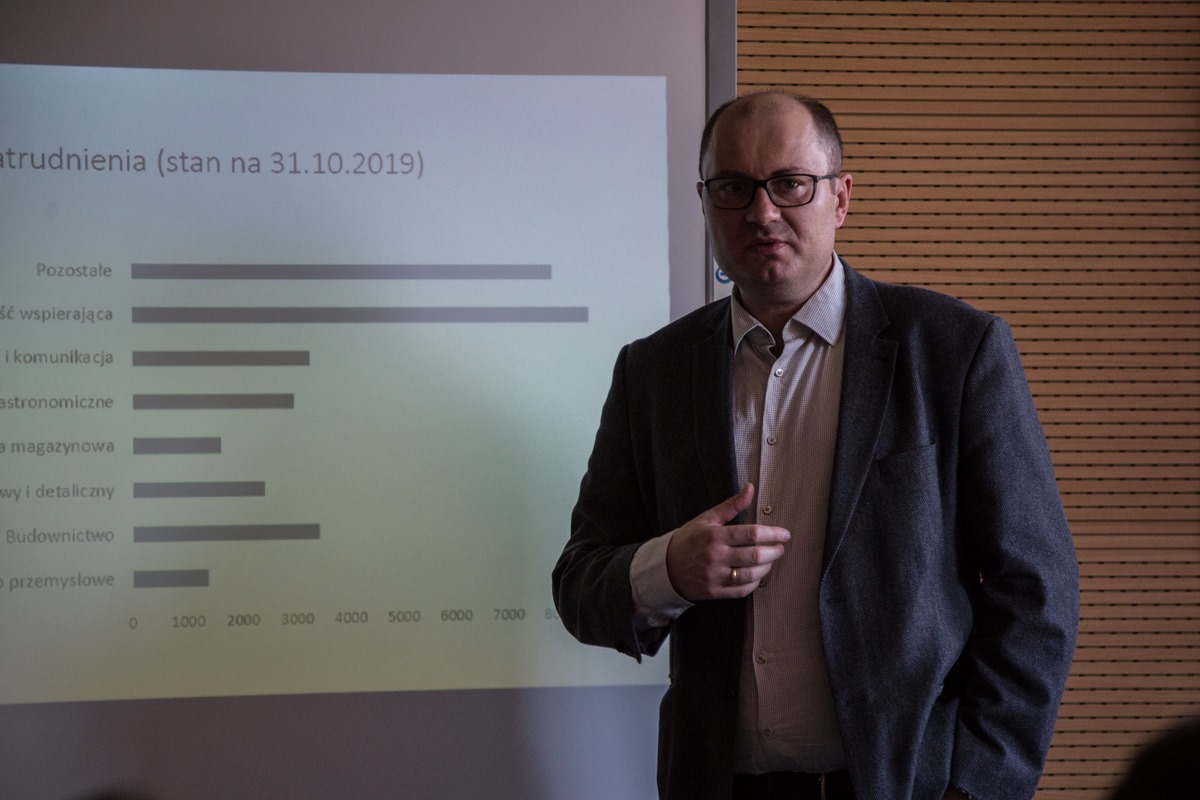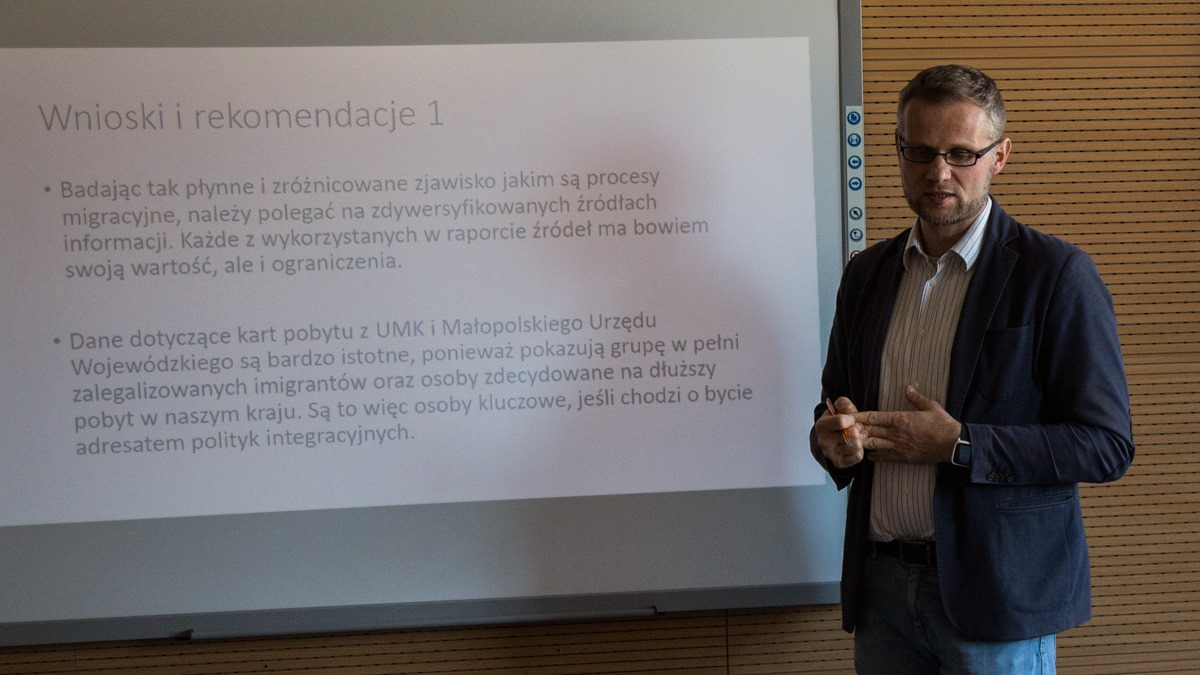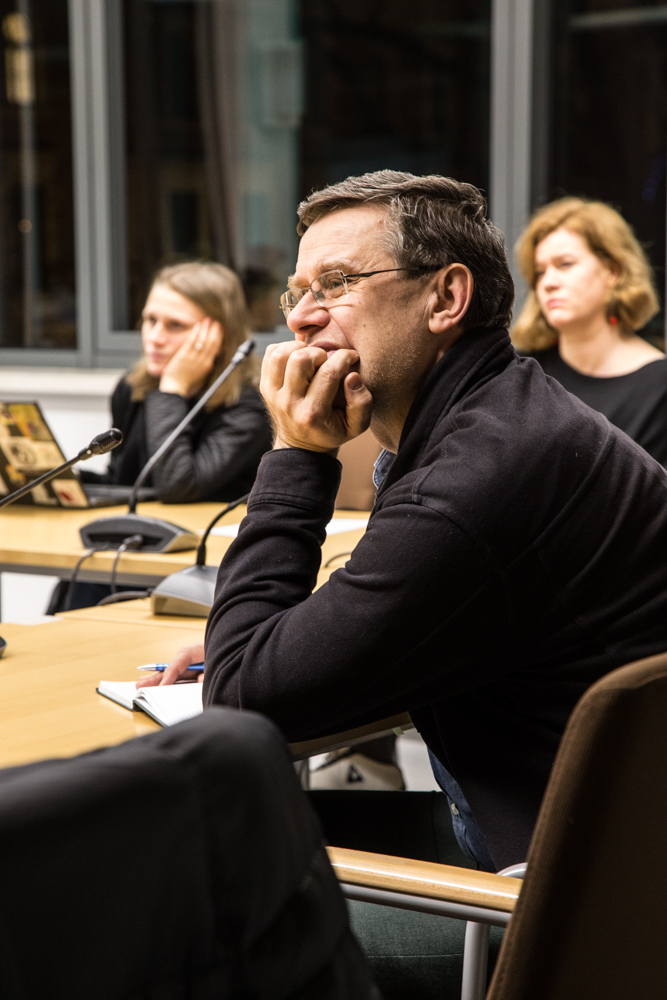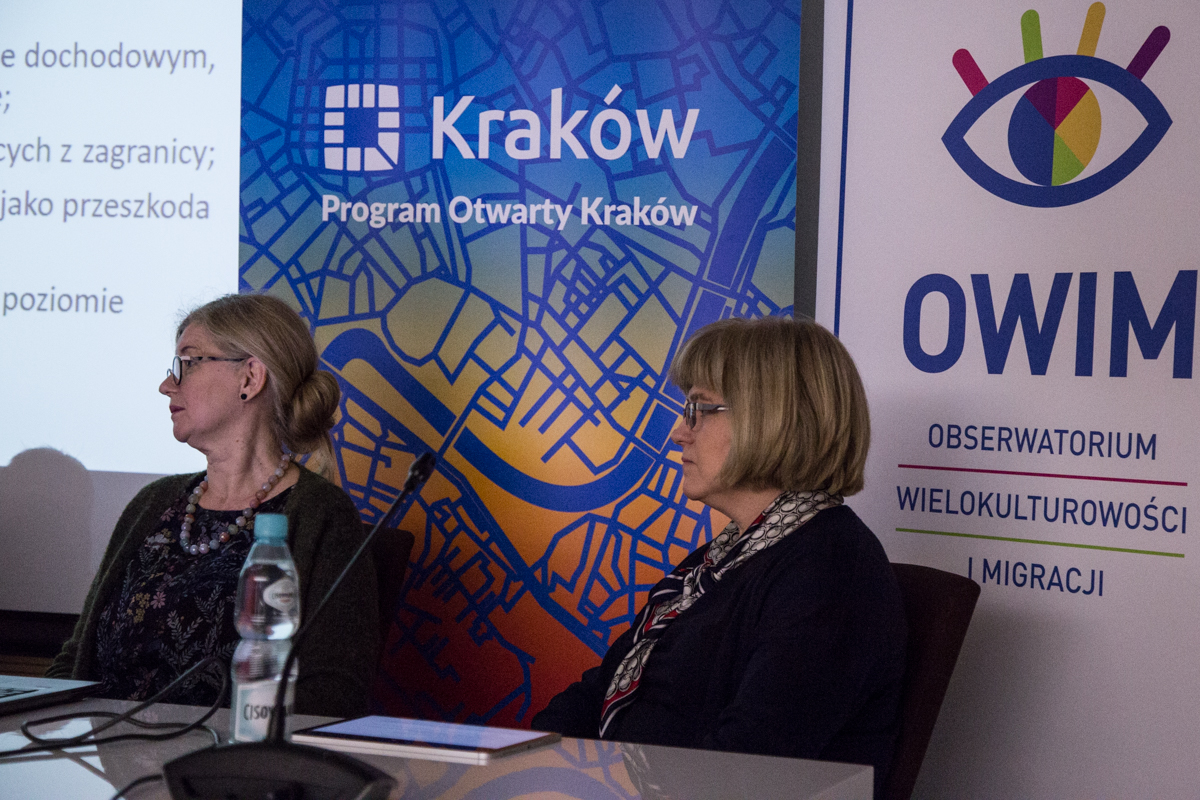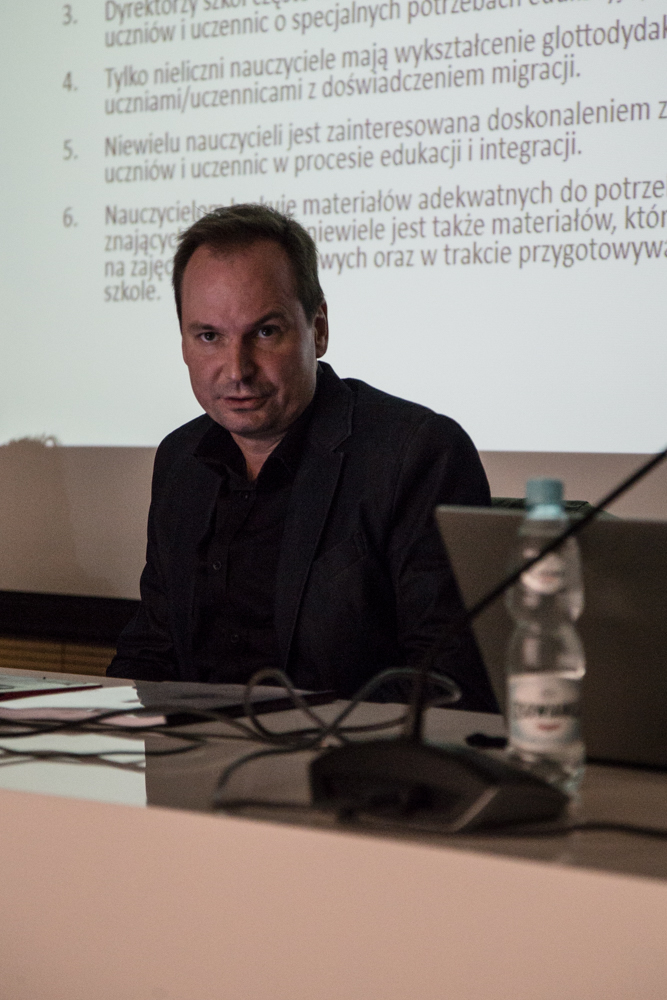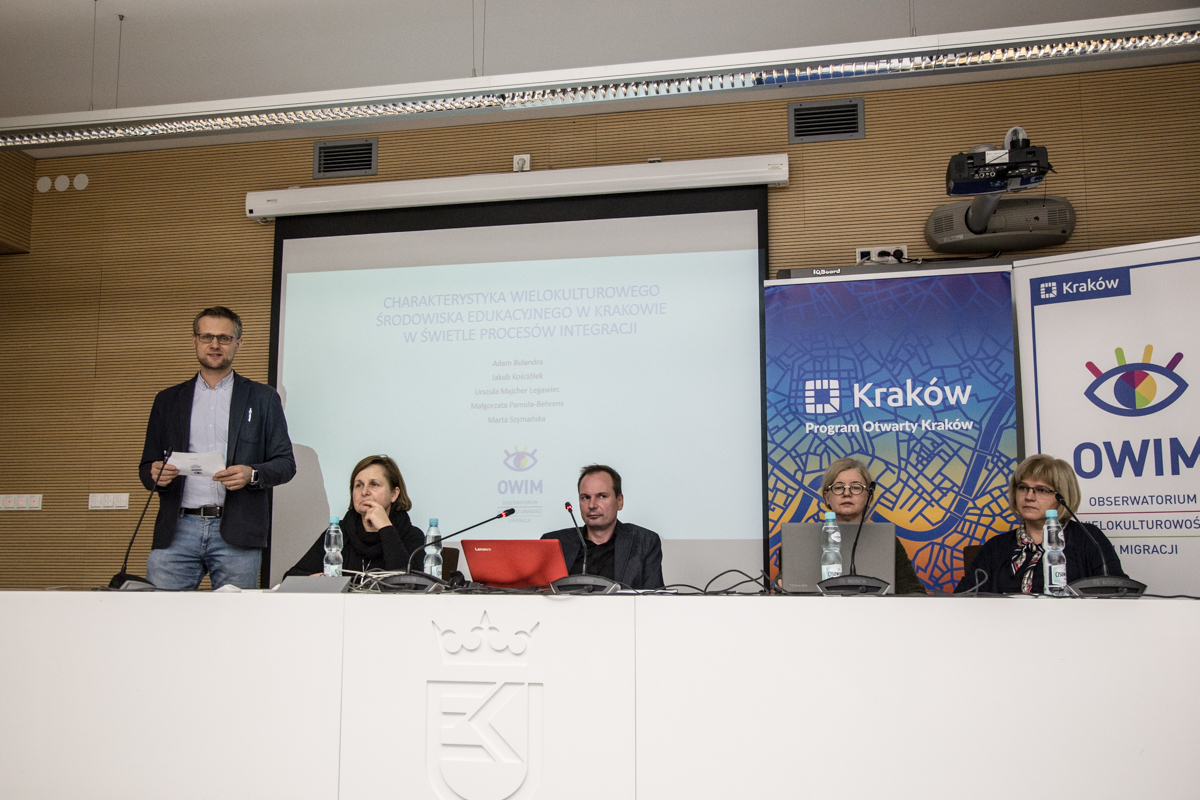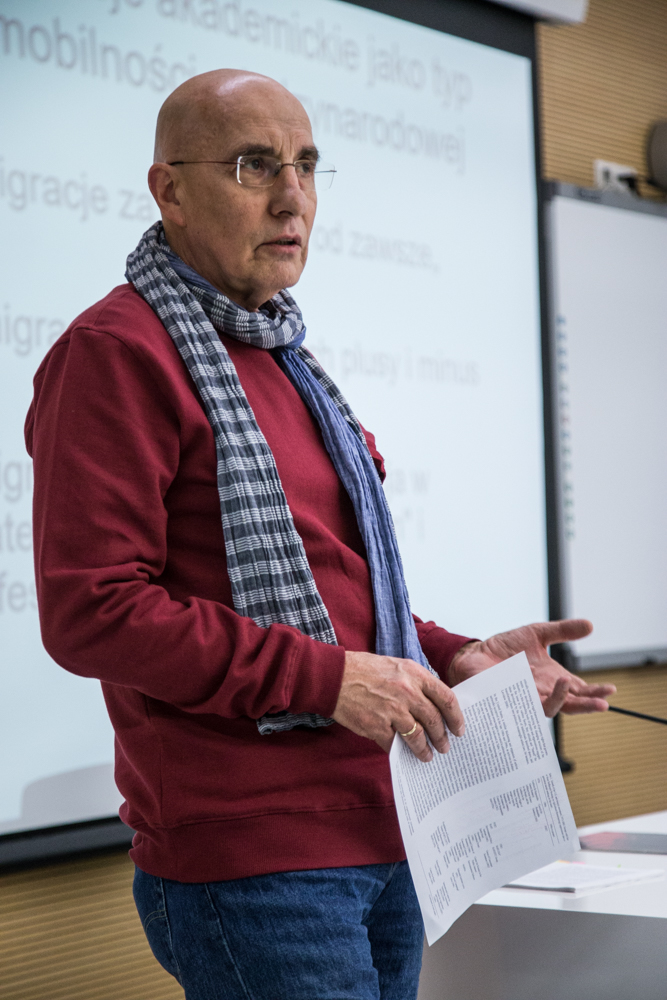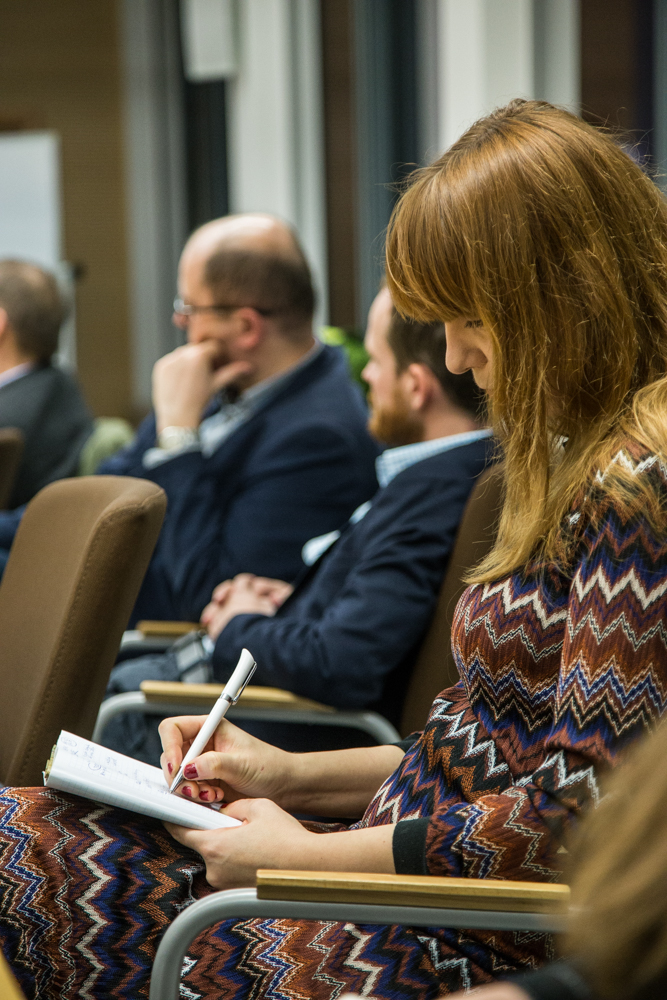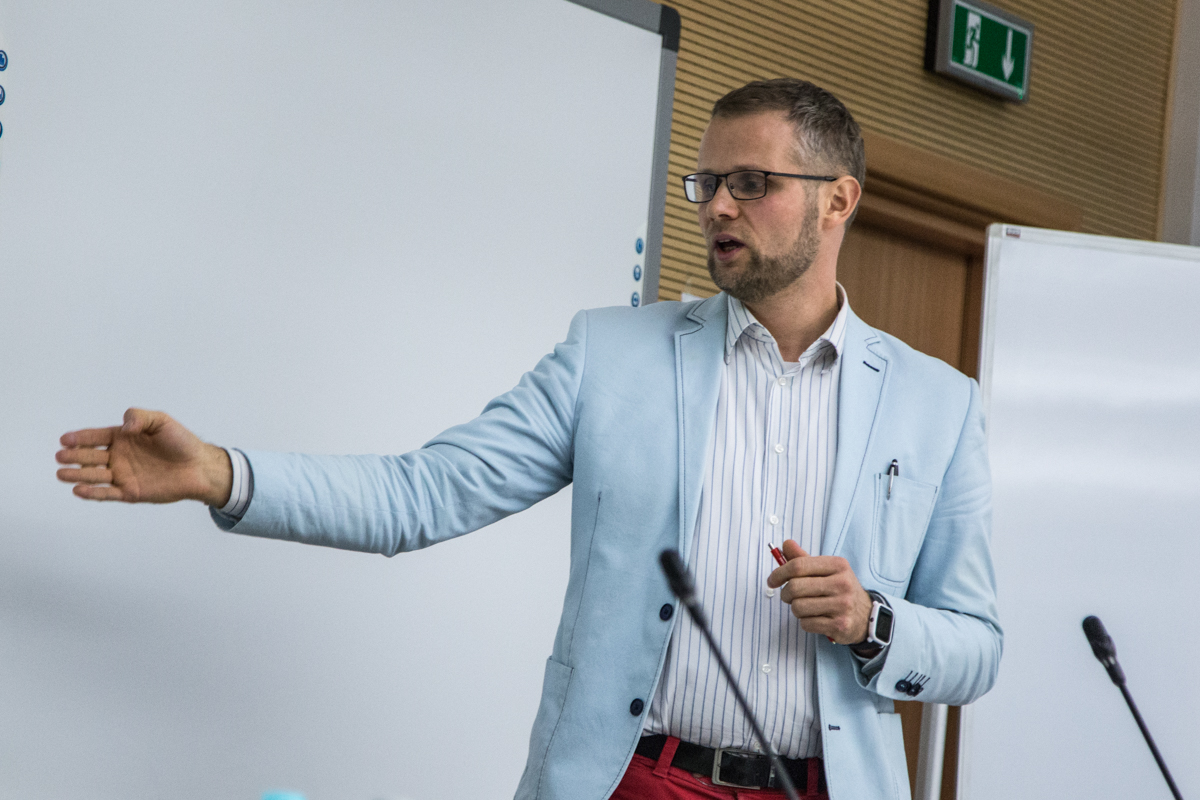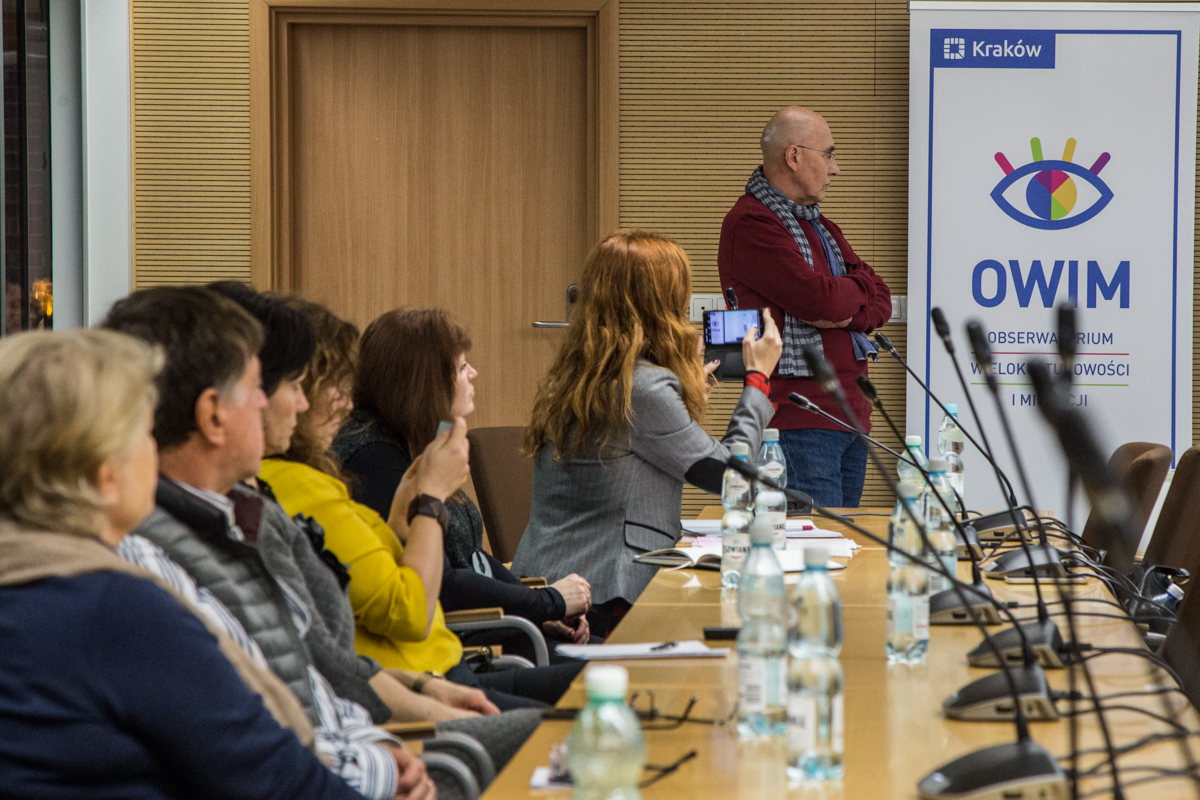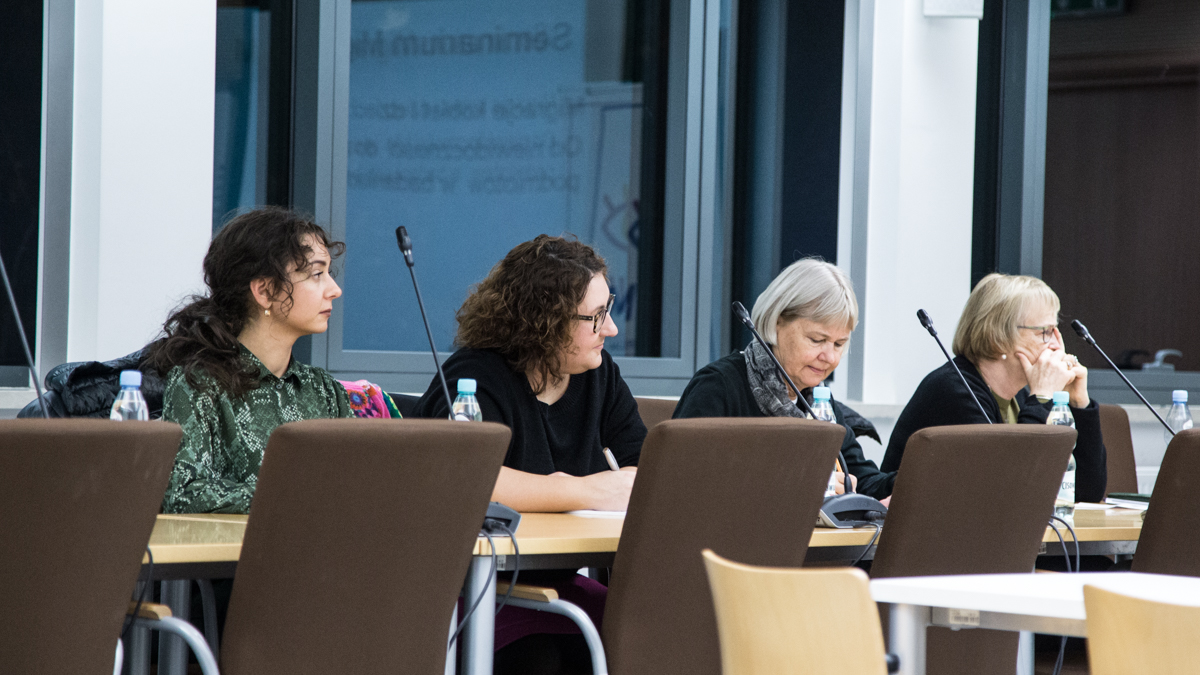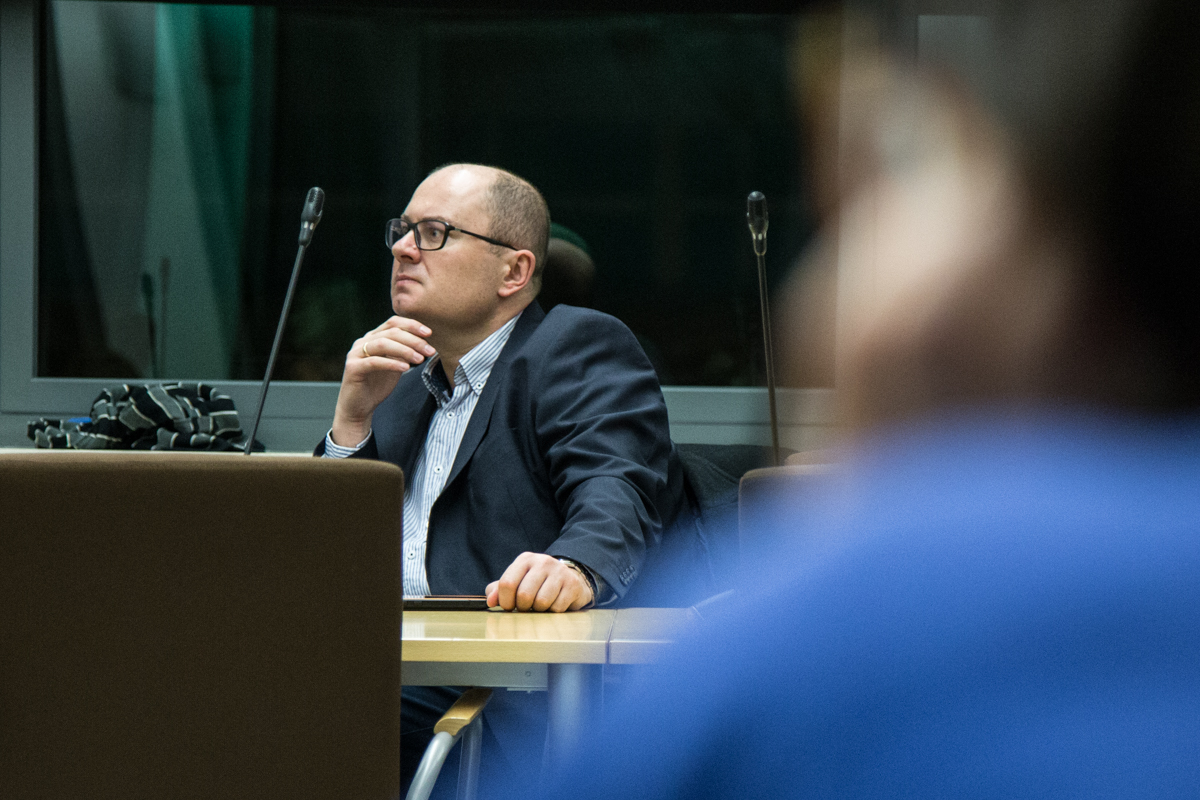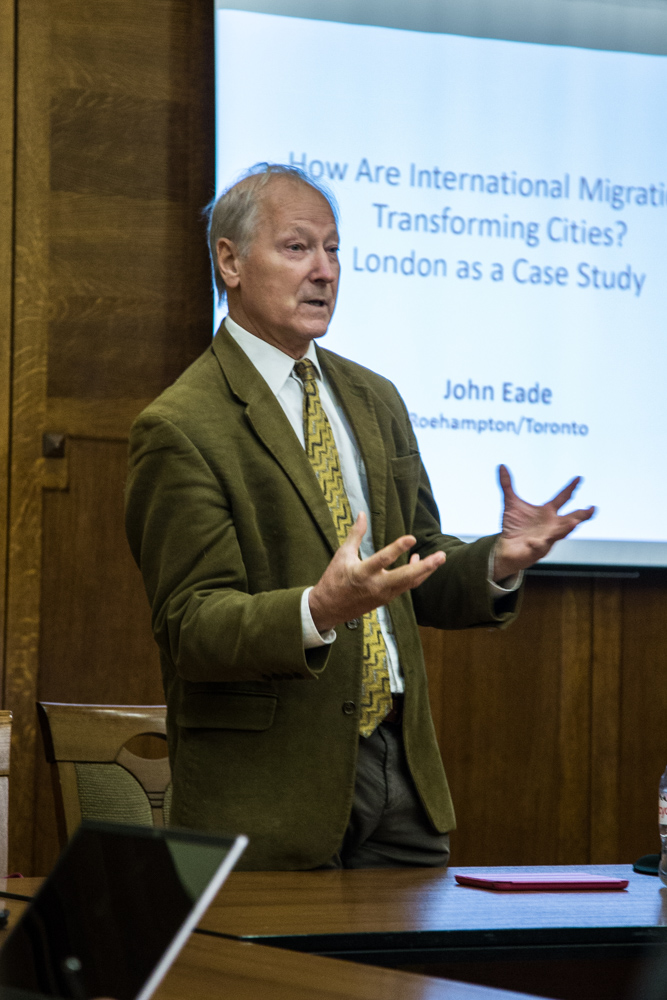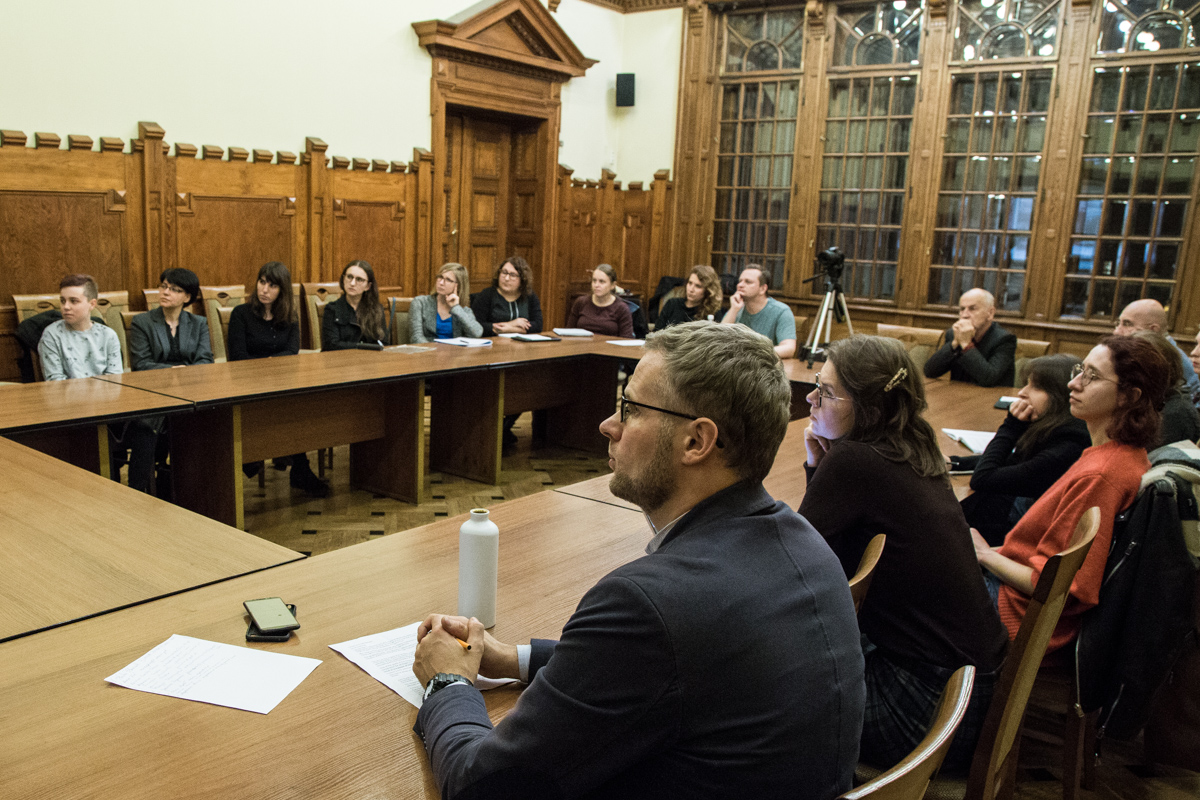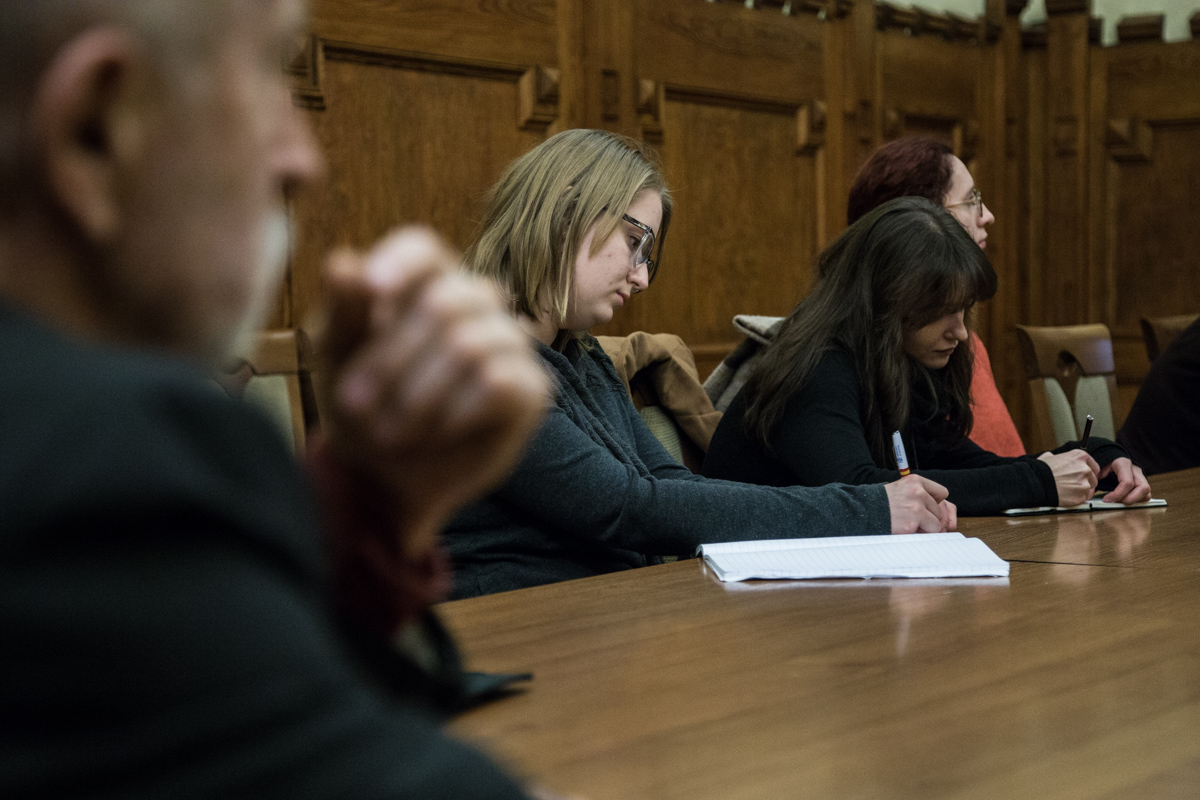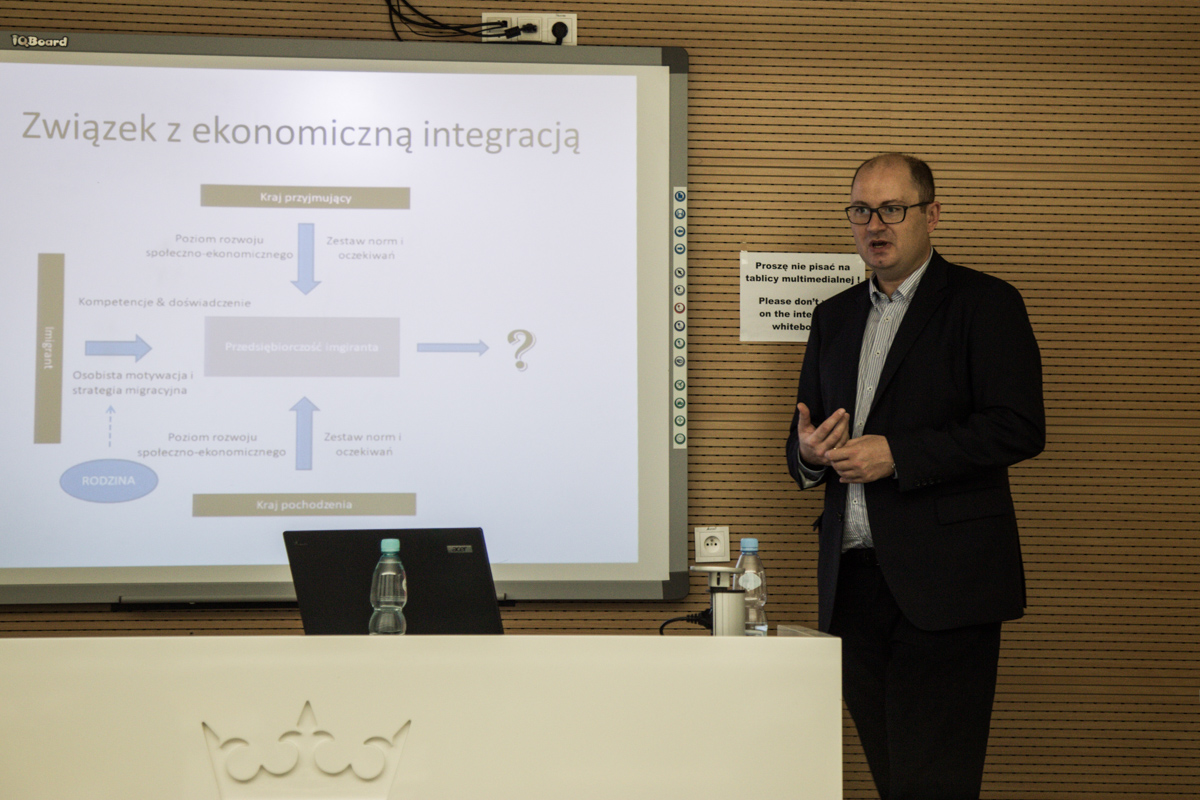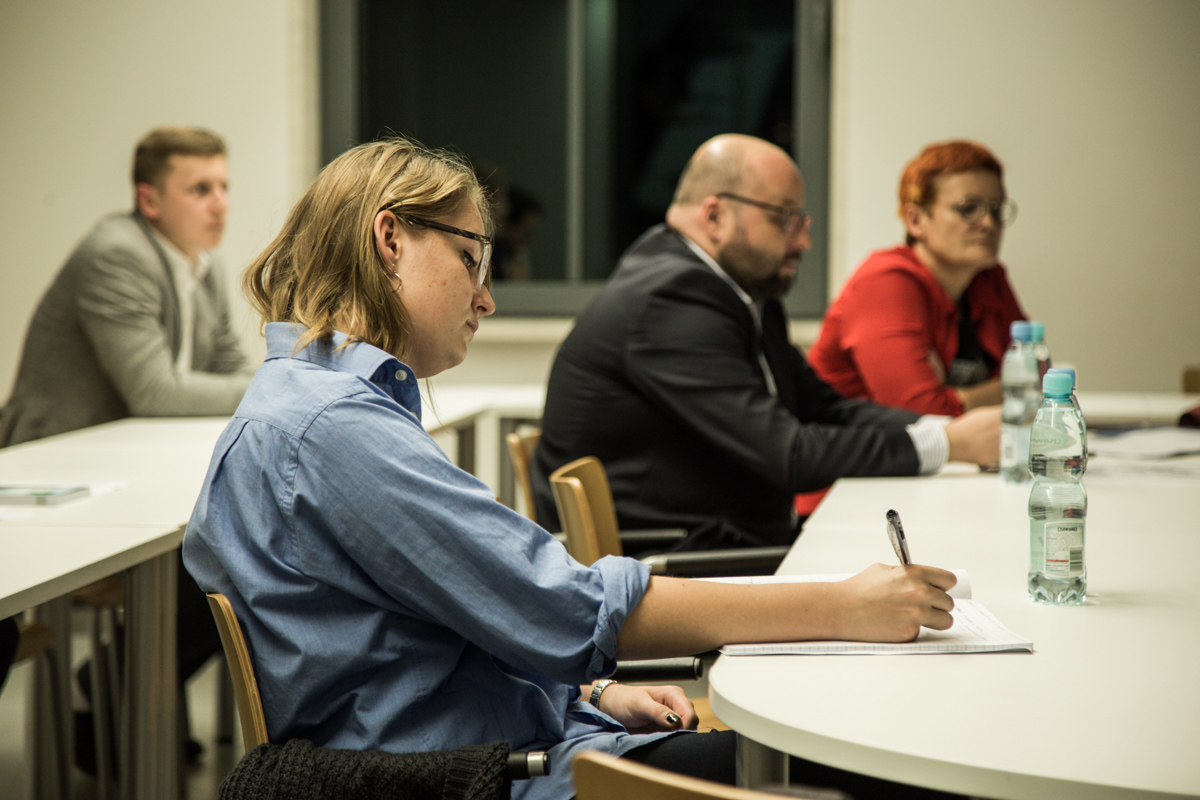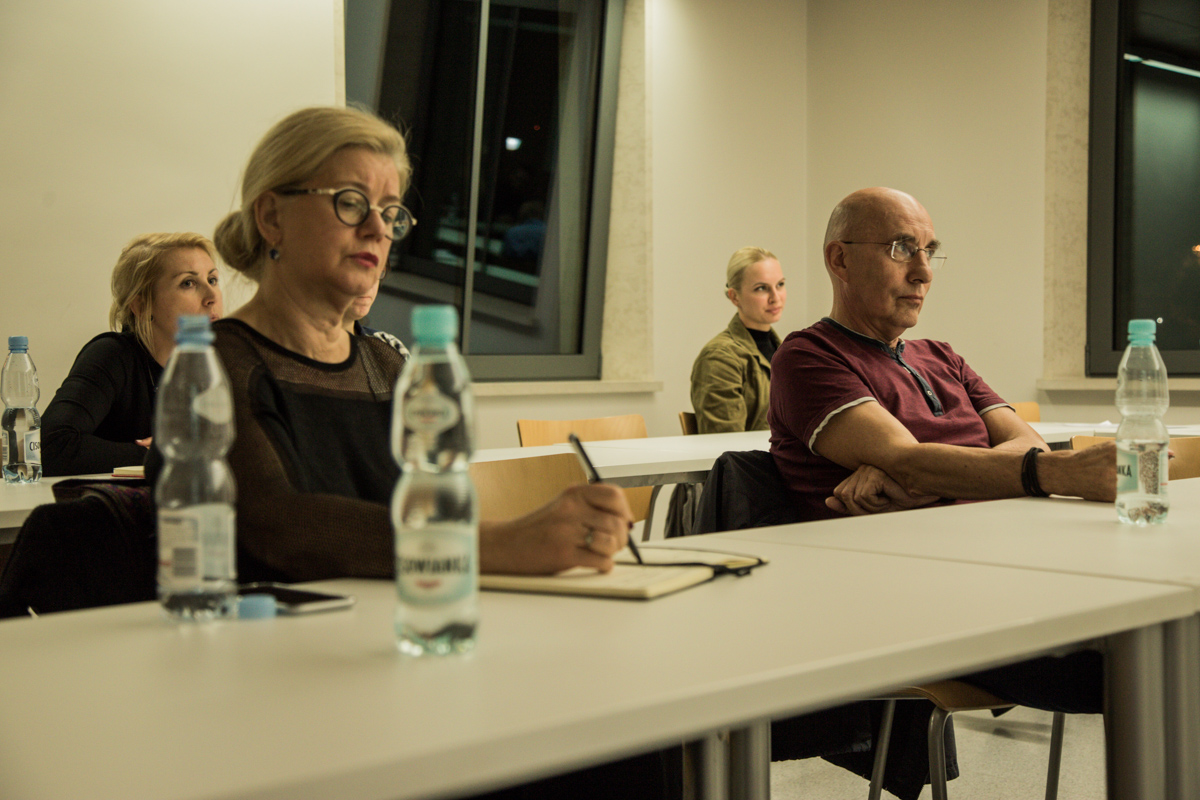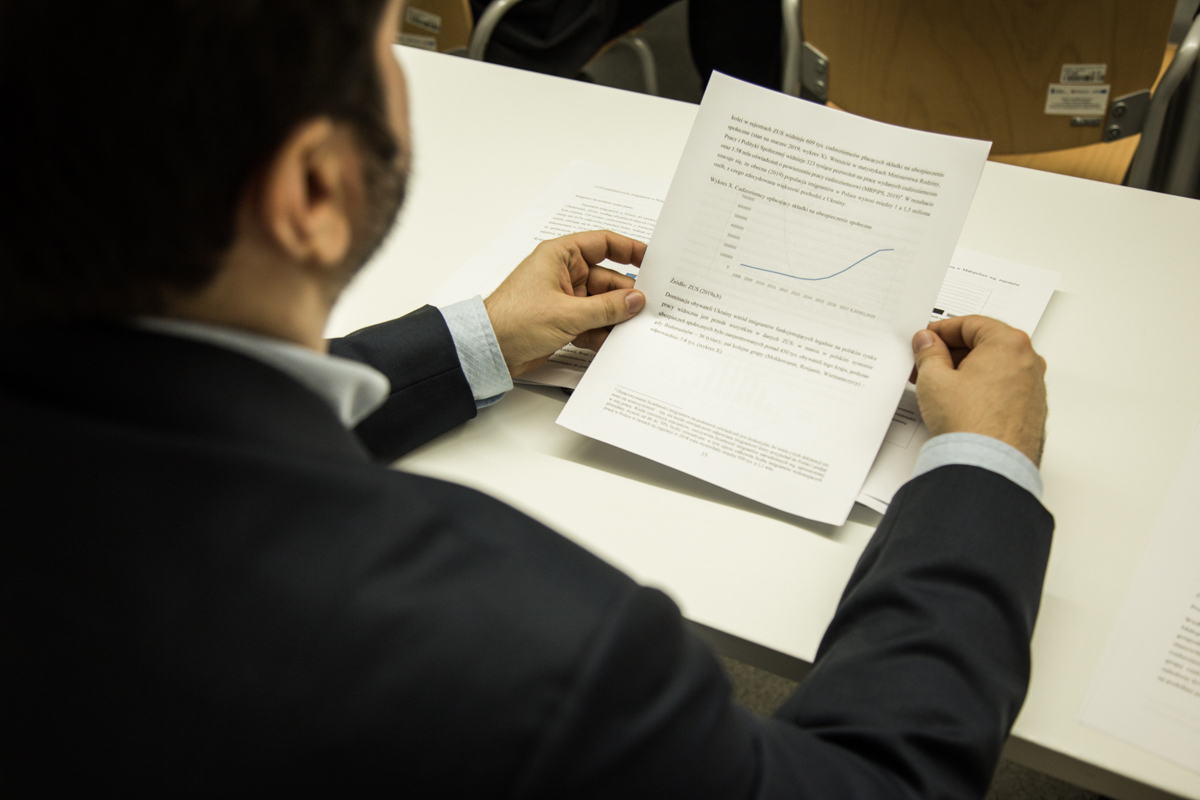MMO Seminars and Talks
19 of January 2022. Karolina Czerska-Shaw, Aneta Krzyworzeka-Jelinowska, Janusz Mucha “The Mobilisation of Help. A Case Study of Krakow ”
The seminar was devoted to the latest MMO report „The Mobilisation of Help. A Case Study of Krakow”.
14 of December 2022. Patrycja Trzeszczyńska, Svitlana Luchik-Musiyezdova i Joanna Dymanus “Forced migrants from Ukraine in Krakow in the light of qualitative research”
The seminar was devoted to the latest MMO report “Forced migrants from Ukraine in Krakow in the light of qualitative research”.
15 of November 2022. Karolina Podgórska i Andrzej Jekaterynczuk “Lublin’s experience in humanitarian crisis management”
The seminar was devoted to the Lublin’s experience in managing the humanitarian crisis caused by the Russian aggression on Ukraine. The results presented during the seminar come from the research carried out by the MigLab Research Team at the UMCS Institute of Sociology: Migration Processes in a Local Perspective.
24 of October 2022. Stefano degli Uberti, Lanciné E.N. Diop, Mohamadou Sall “Internal and External Trajectories of Senegalese Migration”
The seminar focused on the dynamics from the point of view of the decision-making processes to migrate (either internally or internationally) or to stay in Dakar. The speakers thus explored motivations and aspirations of migrants, the role of Dakar in the migration process, and how the urban experience often has become a steppingstone encouraging or an anchor preventing further international moves. This was discussed especially in relation to Europe as a favoured destination: the perceptions, social representations and attractiveness of Europe. The temporality of migration and the socio-cultural and economic factors are at stake, shedding light on the complexity and fluid nature of the propensities to go abroad.
28 of September 2022. Tamar Jacoby “Displaced: The Ukrainian Refugee Experience”
Three weeks after the Russian invasion of Ukraine, veteran journalist Tamar Jacoby arrived in Krakow intending to volunteer, maybe ladle soup or unpack boxes. Instead, at the encouragement of JCC Krakow, she began a series of interviews with Ukrainian refugees. Displaced: The Ukrainian Refugee Experience captures their stories. Every story in the book is unique – one individual’s painful journey. But together, they add up to a collective portrait of the Ukrainian refugee experience. The book launch provided space for discussion of Ukrainian refugees’ diverse experiences in Poland.
11 of July 2022. Konrad Pędziwiatr, Jan Brzozowski, Olena Nahorniuk “Refugees from Ukraine in Kraków”
Multiculturalism and Migration Observatory and Centre for Advanced Studies of Population and Religion in collaboration with the University of Vienna and the Multiculturalism Centre in Krakow decided to conduct a survey amongst 500 refugees from Ukraine to help to answer some of the most urgent questions. The survey was carried out in the form of pen and paper personal interviews by trained Ukrainian researchers between 5th May and 15th of June 2022 in numerous locations where Ukrainian refugees gather (among others in Tauron Arena – PESEL and UNHCR registration spot, Galeria Plaza – Szafa Dobra, Ukrainian Consulate in Krakow and World Kitchen on the Main Railway Station and Support Centres on Daszyńskiego Street). 55% of the questionnaires were filled in Ukrainian and 45% in the Russian language. The seminar shedded light on the key findings from the survey.
You can download speakers’ presentation HERE.
21 of June 2022. Konrad Pędziwiatr, Jan Brzozowski, Marcin Stonawski “Integration of Immigrants in Krakow and in Małopolskie Voivodeship”
The seminar was devoted to the latest OWIM report “Integration of immigrants in Krakow and in Małopolskie Voivodeship”. In the context of the national migration transition and Poland becoming an immigration country, the issue of integrating immigrants with the host society appears more and more often in national public debates. At the same time, there are few quantitative analyzes that would comprehensively show the state of immigrant integration processes in the country. This report, based on the results of a representative survey conducted on the immigrant population of Kraków and the Małopolskie Voivodeship at the end of 2021, aims to at least partially fill this gap. Analyzes the previous migration history of foreigners and their further plans for re-emigration, economic, socio-cultural and spatial integration. An important aspect included in the study was also the impact of the covid-19 pandemic on the lives of the respondents. The report concludes with conclusions and recommendations for public policies.
24 of May 2022. “3 Months of Help for Refugees from Ukraine”
The outbreak of the war in Ukraine and mass migration to Poland resulted in the mobilization of extensive help from both individual citizens and non-governmental organizations. Associations and foundations, which so far departments for their statutory goals, started their activity so far not performed by them before. Over the last 3 months, they have learned not only to manage several times larger teams, but also developed new working methods. They saw their possibilities, but also realized their limitations. Where are they today? What are their conclusions? What did they do, what did they not? What was the price they had to pay for it? What are their plans for the coming months? Together with the Multicultural Center in Krakow, we invited: Urząd Miasta Krakowa, Centrum Pomocy Prawnej im. Haliny Nieć, Centrum Społeczności Żydowskiej w Krakowie (JCC), UA in Kraków.
25 of April 2022. Alethia Fernández de la Reguera Ahedo “Forced Migration, Asylum and Human Rights in Mexico from a Regional Perspective”
Seminar explored the new mobility patterns in Mexico and Latin America and analyzed the challenges posed by forced migration and asylum seekers in a country that has traditionally been the origin and transit of economic migration to the United States. In particular, the paradigm of criminalization and securitization of migration and its effects on international protection for displaced persons from Central America and various Latin American countries was discussed in line with the weakening of the asylum system in the United States.
1 of April 2022. Konrad Pędziwiatr, Jan Brzozowski, Marcin Stonawski “Immigrants in Cracow in 2021”
The seminar was devoted to the latest OWIM report “Immigrants in Cracow in 2021”. The report shows changes in the structure of the immigrant population in Krakow in 2021 compared to 2020 and 2019 based on the latest data from various registers (including data from ZUS, registration information, residence cards, or declarations on entrusting work to a foreigner).
11 of March 2022. Oleg Yarosh, Konrad Pędziwiatr, Dobrosława Wiktor-Mach, Karolina Sobczak-Szelc,Olena Babakova, Karolina Czerska-Shaw, Inga Hajdarowicz and Dominik Wach “Ukrainian Migrations – Past Trends and Current Challenges”
In the first part of the seminar the key findings from the FUME project case study carried out in 2021 among internal migrants who had come to Kyiv during the last 15 years was briefly presented. The second and major part of the seminar was devoted to discussion of current situation of refugees from Ukraine in Poland.
24 of February 2022. Jan Brzozowski, Agnieszka Legut, Konrad Pędziwiatr, Patrycja Trzeszczyńska, Dobrosława Wiktor-Mach: “Expats in Cracow”
The seminar was devoted to the latest OWIM report “Expats in Krakow”. The report presents the results of research on the highly qualified migrant community in Krakow. Expats constitute a very mobile and in many respects a privileged category of migrants, who have a much greater possibility than other migrants to shape their own mobility process.
14 of January 2022. Michał P. Garapich, Elżbieta Mirga-Wójtowicz, Monika Szewczyk: “Roma in Cracow. Past, Present, Future”
The seminar was devoted to the latest MMO report on the Roma community in Cracow. Among other things, the methodological and ethical assumptions of the research on the basis of which the report had been prepared was presented, indicating the need for a more participatory approach to research on ethnic minorities in order to create specific urban policies.
17 of December 2021. Basheer A. M. Saeed and Lanciné Eric Diop : “Iraqi Internal and External Migrations“
Massive population displacements, both internally and internationally, have been consubstantial to the lived experience of Iraqis, mainly due to the war, civic unrest and attacks. This is especially the case for Kurds whose social and political persecution have shaped the development of the Kurdistan Region of Iraq (KR-I) since the 1980’s. This region is therefore a very interesting case to capture the complexity migration trajectories and temporalities. The main urban center of KR-I such as Duhoq represent on the one hand an economic attraction for other rural areas in the KR-I mainly affected by unemployment and a decline in farming productivity. On the other hand, the KR-I is perceived as a safe-haven, for Kurdish fearing or fleeing persecution, particularly for IDPs originated from Mosul and Baghdad. Furthermore, the geographical positioning of the KR-Is make the region a strategic stepping stone for further regular or irregular international migration towards Europe. Seminar was focused on the dynamics from the point of view of the decision-making processes to migrate (either internally or internationally) or to stay in Duhok and Zakho. Our speakers thus explored motivations, aspirations and the role “urban neighborhood” in the migration chain, both with a local and international perspective, especially in relation to Europe as destination (perception and attractiveness of Europe).
18 of November 2021. Hassen Boubakri: “Tunisian Internal and External Migrations“
The seminar was devoted to the different dimensions of migration (internal and international) in Tunisia. Both internal and external migrations are in Tunisia the result of decades of accumulated gaps of development and planning between, on the one hand, the coast and its large cities, which are well polarised and linked to globalisation and high value-added activities, and, on the other hand, the inland regions (the West and the South), which have low development indicators and suffer from investment deficits and high unemployment and poverty rates. The working-class neighbourhoods of the large coastal cities are at the centre of a “chassez-croisee” of internal migrants coming from inland regions who settle there, or extend their routes and cross the Mediterranean irregularly in order to reach Europe. Usually, Tunisian, North African and Sub-Saharan irregular migrants embark on the same boats.
14 of October 2021. Dominika Blachnicka-Ciacek i Agnieszka Trąbka: “The role of sports initiatives in the integration of young migrants in Poland”
The seminar was devoted to the role of sports initiatives in integrating young migrants in Poland. The analysis of selected sports initiatives in which migrants participate, as well as the challenges and barriers that limit this participation, helped to formulate preliminary recommendations on the shape of integration programs that favor the integration of migrants into society and strengthen their relations with the local environment. The presentation was based on the preliminary results of the ongoing qualitative research conducted as part of MIMA in two locations – in Warsaw and the Tri-City.
17 of September 2021. OWiM Talks with Patrycja Matusz
24 of August 2021. OWiM Talks with Adam Spyra
7 of July 2021. Ewa Ślęzak: “Krakow’s Approach to High-Skilled Migrants”
22 of June 2021. Aleksandra Grzymała-Kazłowska:”Migrants’ Anchoring in the Time of Uncertainty”
Seminar was devoted to the latest book by Aleksandra Grzymała-Kazłowska entitled “Rethinking settlement and integration: Migrants’ anchoring in an age of insecurity” (Manchester University Press 2020). The Author in her short presentation has shed light on the concept of anchoring linking the notions of identity, adaptation and settling as well as underlining migrants’ efforts at recovering their feeling of safety and stability.
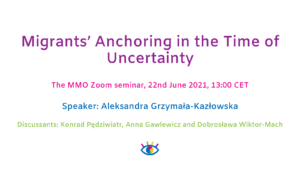
31 of May 2021. Nicola D. Coniglio and Jan Brzozowski: “The Effect of International Migration on Tax Morale”
27 of April 2021. Sibylle Heilbrunn, Jörg Freiling and Nina Bilal: “Refugee Entrepreneurship: Challenges and Opportunities”
Aim of this seminar was to have an academic discussion highlighting key research themes related to refugee entrepreneurship. It focused in particular on the main challenges to setting up and running a business by refugees or asylum seekers, but also on existing opportunities and facilitators. The role of potential for entrepreneurship was addressed, including intentions and motivations of entrepreneurship. Finally, the topic of pandemic in relation to refugee entrepreneurship was discussed.
3 of March 2021. Konrad Pędziwiatr, Marcin Stonawski and Jan Brzozowski: “Immigrants in Cracow in 2020″
During the seminar, the latest report by OWiM researchers – Konrad Pędziwiatr, Marcin Stonawski and Jan Brzozowski was presented. The report describes in detail the immigrant population in Krakow in 2020.
12 of February 2021. Konrad Pędziwiatr, Patrycja Trzeszczyńska and Dobrosława Wiktor-Mach: “Religious communities in Krakow and migration processes”
During the seminar, the latest report by OWiM researchers – Konrad Pędziwiatr, Patrycja Trzeszczyńska and Dobrosława Wiktor-Mach was presented.
The aim of the report is to analyse the transformations of religious communities in Krakow resulting from the arrival of an increasing number of foreigners to the city. In recent years, the religious landscape of Krakow has been undergoing significant changes due to influx of immigrants from many regions of the world. New prayer halls and temples emerge, whereas existing places of worship are witness to an increasing number of new foreign believers. Some religious practices are also changing. In some cases, the arrival of new groups of believers necessitates organizational changes, increasing the frequency of religious service or adding additional languages to communication with newcomers. Thus, immigration has a significant impact on the religious life in the city, clearly modifying some existing aspects of it and creating new ones.
21 of January 2021. Jan Brzozowski, Karol Kaczorowski, Konrad Pędziwiatr and Dobrosława Wiktor-Mach: “Covid-19 Pandemic and the Situation of Immigrants in Cracow”
During the seminar, the latest report by OWiM researchers – Jan Brzozowski, Karol Kaczorowski, Konrad Pędziwiatr and Dobrosława Wiktor-Mach was presented.
The report discusses the results of qualitative research on the impact of the COVID-19 pandemic on the lives of foreigners living in Krakow in 2020. The aim of the study was to identify changes taking place in various dimensions of migrants’ lives, especially economic and social, due to the pandemic. The report shows how the experience of the crisis and the ability to cope with challenges depend largely on the situation of foreigners on the labor market, and especially on the branch of the economy in which they’ve worked. The main difficulties and challenges that the epidemic situation brought to immigrants were also analyzed, including the issues of earnings and (un)stability of employment, problems related to the housing situation, and the functioning of entrepreneurs. The migration dynamics is discussed in the report, both in terms of available statistical data and personal experiences of foreigners. The study also presents various problems with regard to the pandemic that respondents raised in the interviews and those that appeared frequently in discussions in online migrant groups. The issue of support offered to foreigners by various actors is also assessed. The report ends with conclusions with recommendations for the Krakow Municipality.
17 of December 2020. Karolina Czerska-Shaw and Paweł Kubicki: “Foreign Residents and Access to Public Services in Krakow“
Contemporary Kraków may be regarded as a “globalizing” city, a matter of crucial significance for the question of migration here. The term “globalizing” which is used in this project entails a city which has become intensively connected to a global network of influences relatively recently. Such cities are therefore categorized by relatively recent inflows of immigrants, represented by both high-class professionals (so-called expats) from well developed countries, as well as economic migrants from developing nations. Secondly, in contrast to those which have been regarded as global cities for decades, a globalizing city has not yet formed the institutions which meet the requisite needs to become a global one. In particular, it has not yet developed a long-term civic policy in terms of public services for newcomers. Thus Kraków, as a city which is globalizing, is in the process of learning such policies, adjusting them both to the structure of migration to the city and the uniqueness of the city itself. In order for the city to develop its own policy in this regard, it must learn more about the expectations of the foreigners living in Kraków towards these public services, it needs to identify the barriers which they encounter when using them, and to see if they create their own self-help networks of quasi-public services.
The research conducted in the second half of 2020 attempted an empirical analysis of these expectations and barriers amongst “local foreigners” living in Kraków, together with the support networks that they have created. Both quantitative and qualitative methods were employed. The quantitative method (a survey questionnaire, N:300) was intended to identify patterns and regularities in the occurrence of certain phenomena and to measure their intensity and distribution within the individual categories of foreigners which the study encompassed. The qualitative research (in-depth interviews, N:12) served to explain the root causes of key problems identified by the quantitative research.
26 of November 2020. Katarzyna Leszczyńska, Sylwia Urbańska and Katarzyna Zielińska: “Gender in Catholic Migration Organisations”
How does gender and religion affect the migration experience? How are the perceptions, practices and discourses related to gender changing in Polish organizations of the Roman Catholic Church abroad? To what extent in the context of pluralistic, multicultural, secularized and more egalitarian societies than Poland is there a feminization of church structures? Are new gender patterns emerging in the transnational context? These and other questions were answered by the authors of the newly published book “Outside the borders. Cultural gender in Catholic migration organizations”, which our last MMO seminar was devoted to.
27 of October 2020. Tuba Bircan and Carlos Arcila Calderón: “Big Data in Migration Studies“
Traditional statistical data on international migration suffers from the problems (gaps) of inconsistency in definitions, differences in geographical coverages, absence of reasons for migration, timeliness and limitations in demographic characteristics. There is a need for comprehensive, accurate and timely migration data to understand, foresee and draw accurate policies. Recently, countries and international organisations are using Big Data to bridge the gaps in migration data. This MMO seminar provided concise, accessible guidance on how the use of data innovation can complement traditional migration data sources and fill existing information gaps.
You can download Tuba Bircan’s presentation HERE
You can download Carlos Arcila Calderón’s presentation HERE
28 of September 2020. Ewa Krzaklewska, Karolina Czerska-Shaw, Janusz Mucha and David Cairns: “(Im)mobility of International Students in Times of Pandemic“
What is the picture of the current situation of foreign students, particularly affected by suspended international mobility and the closure of borders, being shaped? What is the situation like among foreign students in Krakow? Our invited speakers, Ewa Krzaklewska and Karolina Czerska-Shaw, presented the key conclusions of the research on the (im)mobility of foreign students in Krakow in the times of COVID-19. Based on their research data, they assessed the impact of the pandemic on foreign students in Krakow building their education, careers, and also identity projects related to mobility. Janusz Mucha commented on the results of these studies in the light of the analysis of the situation of foreign students in Krakow / Poland before the coronavirus pandemic carried out by him and Konrad Pędziwiat. David Cairns presented the results of research conducted in Portugal by his team on the topic of the seminar.
15 of August 2020. Marius Turda, Aniko Imre, Sunnie Rucker-Chang & Ian Law: “Global Context of ‘Race’ and the Development of Race and Racism in CEE”
Is race and racism historically global? How are they understood and deployed in Central and Eastern Europe? How is the idea of race related to nation-building and national identity in the region? In what ways are ideas of race linked to the ideas of White supremacy?
Our speakers addressed these and other questions.
2nd of July 2020. Tonia Ugwu, Bolaji Balogun, Margaret Amaka Ohia-Nowak i James Omolo: „Understanding Race and Racism in Contemporary Poland”
The killing of George Floyd, an African American, in the United States triggered protests across the United States. They gradually spread also to the United Kingdom, France, Germany, Belgium and other European countries where people marched in solidarity with African Americans and called for questioning of their colonial pasts and removal of some of the statues celebrating such heritage. The effect of George Floyd’s death has also reached Poland where people from Black Communities have renewed their calls to reshape the perception of black people in the country, as demonstrated in recent protests outside the US embassy in Warsaw and an online discussion #Dontcallmemurzyn. In this seminar, we examine the understanding of race and racism in Poland in the light of latest thematic studies and in relation to the aforementioned events.
5th of June 2020. Maurizio Ambrosini, Samuele Molli, Wojciech Sadłoń & Marcin Lisak: „Religion in Migration Processes in the Pre-Pandemic and Current Era”
Religions have been playing a key role in migration processes both in the pre-pandemic era and at present when the migrants have been particularly affected by the forced immobility. They are one of the elements of the cultural luggage that many migrants have been carrying with themselves while moving from their home countries’ to new destination countries. In the time of crisis, religious networks have been particularly vital in providing not only spiritual and mental support, but sometimes also material assistance. The seminar was devoted to the implications of religion in different types of migration processes (from forced to voluntary ones) and in various parts of the world. It strove to assess some of the major implications of these processes in the pre-pandemic times as well as in the last months when the lives of all people but in particular migrants have radically changed. One of the issues relating to the current situation discussed was how various religious communities made up by migrants or caring for them had reacted to the pandemic.
14th of May 2020. Aki Harima, Daniela Bolzani, Ružica Šimić Banović & Katarzyna Andrejuk: „Covid-19 Pandemic and Immigrant Entrepreneurship”
9th of April 2020. Steven Vertovec, Kerilyn Schewel, Biao Xiang and Olena Babakova: „The Coronavirus Pandemic and Forced Immobility”
9th of March, 2020. Konrad Pędziwiatr, Marcin Stonawski and Jan Brzozowski: “Immigrants in Kraków – Demographic Data”
14th of January 2020, Adam Bulandra, Jakub Kościółek, Urszula Majcher-Legawiec, Małgorzata Pamuła-Behrens, Marta Szymańska: “Characteristics of the multicultural educational environment in Cracow – the context of integration”
During the seminar, a report authored by Adam Bulandra, Jakub Kościółek, Urszula Majcher-Legawiec, Małgorzata Pamuła-Behrens and Marta Szymańskia was presented. This extensive document focuses on the issues such as multicultural education in Kraków in the perspective of comparative cross-regional statistics (pre-school and school education), the background of employees of educational institutions to work in a multicultural setting and the present solutions applied in schools in Cracow related to the presence of students who had experienced migration. A part of the report focuses on recommendations on the support of multicultural competences of teachers, educational workers, students and pre-school pupils; management of education in the context of migration – organization of work of schools and kindergartens and support of competences of workers working in the sector; tasks of the pedagogical supervisors related to the multicultural educational setting; support for schools multicultural development.
17th of December 2019, Janusz Mucha and Konrad Pędziwiatr: “Foreigners at the universities in Kraków”
During the seminar, a report authored by Janusz Mucha and Konrad Pędziwiatr was presented. The report focuses on the presence of foreigners at higher education institutions of Cracow. The most important issues covered are academic migrations as a type of international mobility, dynamics of academic migration to Poland, foreign students in Poland and Cracow according to the newest statistical data, recruitment policies of universities in Cracow, integration of foreign students in Cracow, towards the better integration – providing care for foreign students, places of residency of foreign students in Cracow, foreign students on the labour market – alumni and work in Poland, informal cultural life of foreign students in Cracow, foreign employees of universities in Cracow (2012 and 2015-17). Recommendations for the municipality are included in the report and concern monitoring and regulation (if it is possible and adequate) of foreign student and
academic migration to Cracow.
5th of December, 2019. Krystyna Slany: “Migration of women and children – from invisibility to visibility of subjects in the migration research”
Professor Krystyna Slany specializes in social demography, sociology of migration and sociology of family and gender. She leads the Department of Population Studies at the Jagiellonian University and is a member of the committees of the Polish Academy of Sciences: the Committee of Migration Research and the Committee of Sociology. Our guest presented the consequences of two paradigm shifts in the migration research concerning women and children migrants. She discussed the cause for shifting towards intensifying studies of subjects of migration that until recently were outside the scope of research. Two paradigm shifts, in the 1970s and 1990s, led to employing of new qualitative research methods, participatory methods and resulted in new finds and research directions.
12th of November, 2019. John Eade: “How international migrations are transforming cities? Case of London”
The presentation described the character of London as a global city through an outline of the city’s immigration from the 17th century. Professor Eade concentrated particularly on two immigration flows after the Second World War – post-colonial migration from Bangladesh and Polish migration after the country joined the European Union in 2004. He focused on the role played by religion through the establishment of mosques and churches and the associated political representation of a community. John Eade: Professor in Sociology and Anthropology at the University of Roehampton, London, and Visiting Professor, Toronto University. His research focuses on global migration, multiculturalism, urban ethnicity and pilgrimage and his single and co-authored publications include The Politics of Community (1989), Contesting the Sacred (1991), Living the Global City (1997), Placing London (2000), Reframing Pilgrimage (2004), Transnational Ties (2008), Re-Living the Global City (2018), Pilgrimage and Political Economy (2018).
24th of October 2019. Jan Brzozowski: “Immigrant Entrepreneurship in Kraków – the present state and perspectives of development”
During the meeting, a draft version of the report focusing on immigration entrepreneurship will be presented by the author – Jan Brzozowski, a professor at the University of Economics and a researcher of the MMO. The immigrant entrepreneurship is currently gaining popularity as a research field. In the context of Cracow, it also gains a practical dimension. The capital of the Małopolskie voivodship is one of the biggest immigration centres of Poland and a dynamic business
centre. The immigrant entrepreneurs are a group which becomes more and more visible. The author seeks an answer to the following questions:
- How does the immigrant entrepreneurship in Cracow develop?
- What obstacles and opportunities for business development do the migrant entrepreneurs
see? - How should the public policies be adjusted to facilitate the process of the economic
integration of migrants?
The seminar provided an opportunity to meet the author of the report and other researchers of the MMO and to share critical thoughts on migration and multiculturalism in Cracow. It was the first event in the cycle of migration seminars organized by the MMO and CASPAR.

